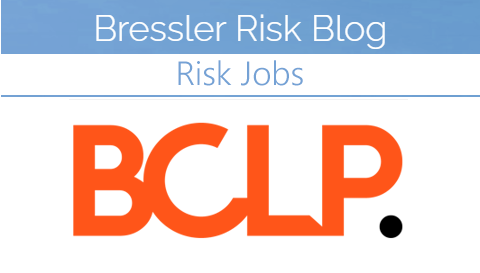Conflicts Concerns — Patent and Trademark Office Director Conflict Allegation Cleared, Court Shopping for Bankruptcy Edge
Posted on
“Micron, Dell, HP win appeal over conflict claims tied to US patent official” —
- “A U.S. appeals court on Friday upheld U.S. Patent and Trademark Office rulings for Micron, Dell, and HP, finding that the decisions could stand even though the attorney who represented the tech companies later became the office’s director.”
- “The U.S. Court of Appeals for the Federal Circuit said the companies’ adversary in the USPTO case, patent owner Unification Technologies, had not shown that Kathi Vidal’s previous participation in the case influenced the administrative judges who invalidated its patents.”
- “Unification sued Micron, Dell and HP for infringing the patents, which relate to managing and deleting data in memory chips, in Texas federal court in 2020. The HP and Dell cases have since been dismissed, while the Micron case is ongoing.”
- “The tech companies — represented by Vidal, then a partner at Winston & Strawn — asked the USPTO’s Patent Trial and Appeal Board (PTAB) to invalidate the patents later that year. President Joe Biden nominated Vidal to head the office in 2021 and she was confirmed in 2022, after which she recused herself from the case.”
- “The board invalidated Unification’s patents later that year. Unification argued at the Federal Circuit that the case improperly required PTAB judges to ‘evaluat[e] the arguments of their boss’ and said they were ‘monetarily disincentivized’ from ruling against Vidal because she reviews their performance.”
- “U.S. Circuit Judge Raymond Chen wrote for a three-judge panel on Friday that Unification ‘provided no evidence that the Director controls [PTAB judge] bonuses or performance reviews,’ and that a PTAB judge would have no reason to think that their decision ‘could affect their bonus determination because of the way that the Director might react.'”
“How Kirkland Uses Court Shopping to Get an Edge in Bankruptcy” —
- “In this system, Kirkland & Ellis LLP—the biggest player in giant corporate bankruptcies, and the largest law firm in the world by revenue—stands out.”
- “Kirkland didn’t invent forum or judge shopping, and it’s not the only firm that scouts judges and districts in its quest to help its clients quickly get in and out of Chapter 11. But an analysis of its forum shopping playbook, part of Bloomberg Law’s examination of the inner workings of US bankruptcy courts, shows how one firm can give—and take away.”
- “When rulings don’t go in its favor or controversy erupts in courts where Kirkland has been a steady presence, it often stops taking its business there and brings new cases elsewhere, a Bloomberg Law analysis of its court filings shows.”
- “In at least three instances, the shift from one district to others came after questions surfaced in cases in which Kirkland was involved, a review of court filings compiled by BankruptcyData.com found. Its actions in Houston, Delaware, and Richmond reveal the pattern. In Houston, the newest example, a romance scandal involving a judge and local lawyer cast a spotlight on cases in which Kirkland was lead counsel. After the controversy broke, the firm went from filing multiple Houston cases annually to filing none, Bloomberg Law found.”
- “‘If a court doesn’t come through for Kirkland in one case, Kirkland won’t take them another one,’ bankruptcy expert Lynn LoPucki, a professor at the University of Florida Levin College of Law, said in an interview.”
- “Chicago-based Kirkland is a driving force in the bankruptcy system. From 2011 to 2020, it represented the debtor in more than 20% of large public company bankruptcies, more than double its nearest competitor. Kirkland bills heartily for its services, with top partners charging more than $2,000 an hour to help distressed companies navigate their financial trouble.”
- “In a system in which law firms have great discretion on where they file cases, Kirkland is noteworthy for its ability to shift its cache of major bankruptcies to favored courts. Those filings deliver a financial jolt to the local legal community and help transform sleepy bankruptcy districts.”
- “‘Unlike any other firm around, Kirkland exercises market power over bankruptcy courts,’ Georgetown University law professor Adam J. Levitin wrote in a 2023 law review article about venue shopping, a practice ingrained in the US bankruptcy system.”
- “For decades Kirkland regularly filed large Chapter 11 bankruptcies in Delaware, a favored spot for law firms. Then in 2015, a judge raised sharp questions in the bankruptcy of Samson Resources Corp., in which Kirkland was the debtor’s counsel, suggesting senior lenders would ‘kill’ the oil and gas company if they didn’t get what they wanted… Then Kirkland stopped bringing cases in Delaware.”
- “‘Coming from a firm that handles a fifth of all megacase filings, it is a weighty threat, especially to a judicial district like Delaware that is able to justify its seven temporary bankruptcy judgeships based solely on its flow of large chapter 11 filings,’ he [Levitin] added.”

 Regular blog readers know that I like experiments. Last week, I was catching up with an old risk friend (who taught me and one of my favorite CEOs the ins and outs of ethical walls, nearly two decades ago).
Regular blog readers know that I like experiments. Last week, I was catching up with an old risk friend (who taught me and one of my favorite CEOs the ins and outs of ethical walls, nearly two decades ago).



